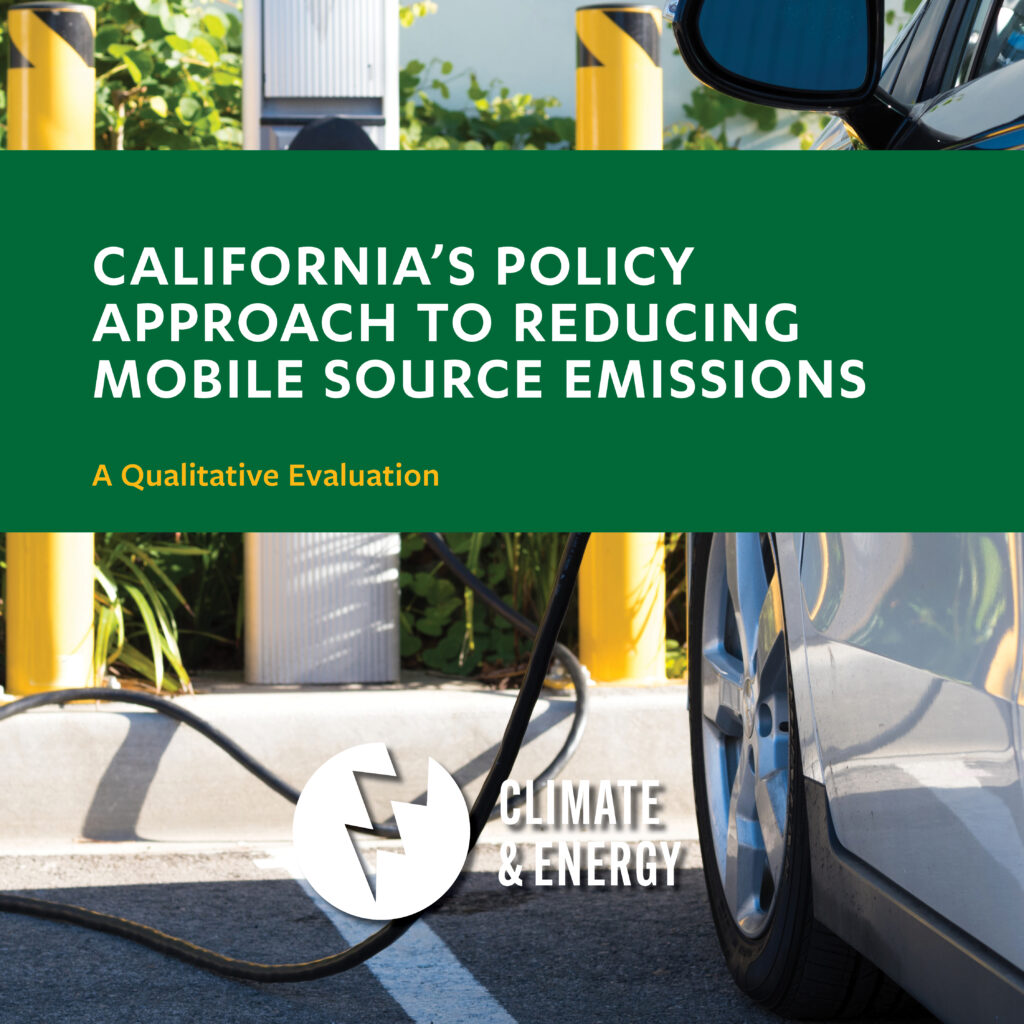How Much Credit Can California Take for the Electric Vehicle Revolution?
New CLEE report responds to criticism over how the state quantifies policy impacts.
The California Air Resources Board (CARB) is the state’s lead agency on zero-emission vehicle policy, from its first-in-the-nation mandate on automakers to produce zero-emission models to its wide-ranging incentive programs, among other policy approaches. But in 2021, the California State Auditor released a report criticizing how CARB measures the effects of its zero-emission vehicle policies. Specifically, the report concluded that the agency “has not done enough to measure the [greenhouse gas] emissions reductions its individual transportation programs achieve.” The Auditor’s report further recommended that CARB officials make efforts to better estimate the precise greenhouse gas emissions reductions and other co-benefits from each individual transportation program.
Following the Auditor’s report, CARB contracted with UC Berkeley Law’s Center for Law, Energy and the Environment (CLEE), along with a team of experts at the Plug-In Hybrid & Electric Vehicle Research Center at UC Davis and Transportation Sustainability Research Center at UC Berkeley, to examine the impacts of their zero-emission vehicle programs and to develop recommendations on long-term data collection and analysis tools.
Today CLEE is pleased to release a new report assessing the impacts of CARB’s policy approach on zero-emission vehicles, which includes both regulations and incentive programs that aim to achieve 100% zero-emission vehicle sales by 2035. While the research team acknowledges the need for additional data and analysis to evaluate the impacts of CARB’s suite of policies, regulations, and incentives, we believe that the Auditor’s report greatly underestimated the challenge of untangling the effects of any specific incentive or regulation on the broader zero-emission vehicle market.

The primary challenge for CARB in untangling these impacts is that the agency relies on a suite of policy approaches that work in concert. Most prominently, its regulatory programs require manufacturers to produce and supply zero-emission vehicles (ZEV) to the market, while incentive programs help spur demand for these vehicles by reducing the price for consumers and fleet operators to purchase or lease them. Furthermore, these programs have created a feedback effect of bolstering a significant and ongoing global market transformation. This transformation has led to emission reductions and significant “second-order” effects, such as:
- Decreased resale prices of ZEVs
- Increased willingness of automakers to provide ZEVs
- Increased deployment of ZEV charging infrastructure
- Increased consumer awareness of ZEVs
In short, we know the programs have been successful in contributing to the market transformation underway. But given the interrelated nature of these programs and their second-order effects, the accurate extent of the impact is unclear, as is the impact of any one particular program.
Our report outlines several recommendations for CARB going forward to better address this challenge, which include:
- Conduct a more comprehensive analysis of the current ZEV sales and vehicle registration data to better quantify impacts from specific ZEV programs.
- Compare ZEV purchases in California to those in other states with ZEV incentive programs, as well as states without such programs, to provide a comparative analysis that could indicate how California-specific programs may be affecting ZEV adoption
- Establish consistent survey parameters across all the incentive programs to better inform the quantification estimates and analysis of consumer decision-making involving ZEVs.
The UC research team is presently refining methodologies to quantify the greenhouse gas reductions from an incentive to purchase a vehicle or equipment, considering the role of regulations, other incentives, and any other factors deemed appropriate. Gaining an understanding of the most effective mix of policies to optimize ZEV deployment will not only benefit California going forward but will also provide valuable insights to other jurisdictions considering different policy approaches.
Read our full report here: A Qualitative Evaluation of California’s Policy Approach to Reducing Mobile Source Emissions







Reader Comments